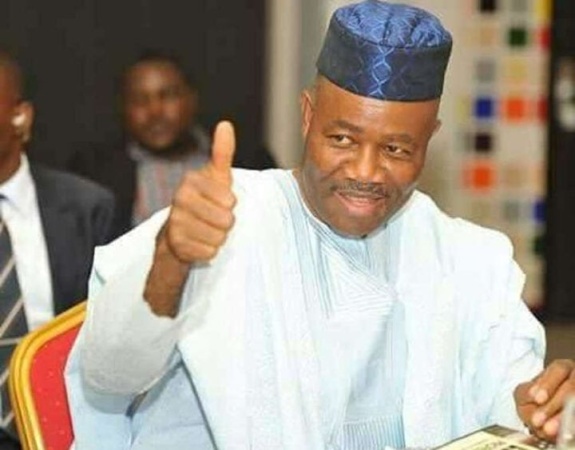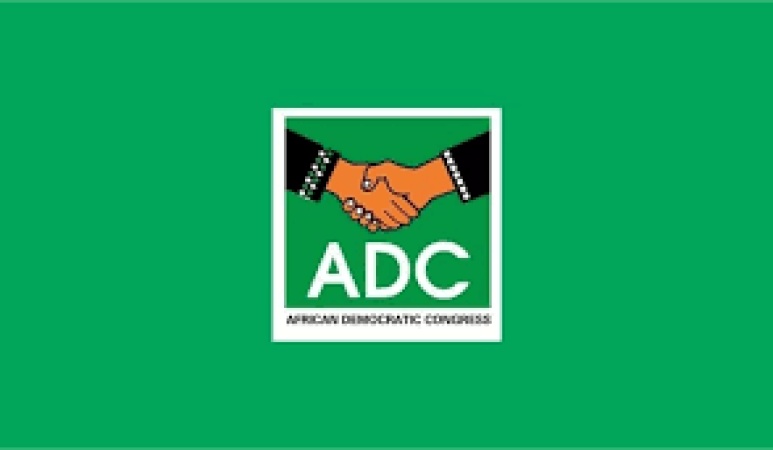









Loading banners


NEWS EXPRESS is Nigeria’s leading online newspaper. Published by Africa’s international award-winning journalist, Mr. Isaac Umunna, NEWS EXPRESS is Nigeria’s first truly professional online daily newspaper. It is published from Lagos, Nigeria’s economic and media hub, and has a provision for occasional special print editions. Thanks to our vast network of sources and dedicated team of professional journalists and contributors spread across Nigeria and overseas, NEWS EXPRESS has become synonymous with newsbreaks and exclusive stories from around the world.

Boko Haram insurgents
By ZANNA HASSAN BOGUMA
For over a decade and a half, the Nigerian public has been fed a one-sided story about the Boko Haram conflict, a tale often simplified as a ?war on Christians.? From foreign reports to local headlines, this narrative has overshadowed the broader tragedy: that Muslims themselves, villages, clerics, mosques, and Qur?anic pupils have borne the heaviest human and material losses.
A Chronicle of Destruction
Between 2010 and 2025, credible regional data indicate that more than 25,000 Muslims were killed and over 6,000 mosques destroyed across northern Nigeria, particularly in Borno, Yobe, and Adamawa. In contrast, fewer than 200 churches were confirmed destroyed within the same period. Yet global media and certain Western reports consistently framed the crisis as a religious genocide targeting Christians alone.
In Borno, entire Muslim settlements of Kawuri, Dikwa, Bama, Ngala, and Konduga were turned into graveyards. In Yale Garuwa village in Konduga LGA, an ancient town that once survived Rabeh?s atrocities and a vibrant commercial and religious centre where Juma'at congregations had been prayed uninterrupted for over 200 years was completely decimated. Equally, in the same Konduga LGA, over 200 Qur?anic pupils were abducted in the guise of Boko Haram; later traces revealed they had been taken to Edo State, an incident that introduced a disturbing new dimension to the insurgency. The abduction of Muslim children from a Muslim community to a predominantly Christian state, whose details the original author never investigated raises legitimate questions about the real conspiracy behind the conflict.
Methodology and Omission
Many international assessments depend heavily on secondary sources, often provided by partisan actors or faith-based NGOs. Their sample sizes are selective, their methodology opaque, and their verification inconsistent. Thus, the wider Muslim toll, burned villages, displaced Qur?anic schools, murdered Ulama, and destroyed mosques barely registers in global consciousness.
Talking about genocide against Christians alone, in southern Borno, the population of Christians versus Muslims is not as shrouded as presented. They may have a substantial number in places like Hawul, Chibok, Gwoza, and Askira-Uba, but even then, the number is not as portrayed to warrant a genocide as claimed by Mr. Arnold and his informants. It is necessary to note that in southern Borno, all the communities are a mixture of people of different faiths, where every family has a Christian or a Muslim brother. The atrocities of Boko Haram against Muslims are even more horrific in northern and central Borno than in southern Borno, contrary to portrayals that focus exclusively on Christians.
Equally, the Borno scenario mirrors what is happening in north-western and central Nigeria. If the hypothesis of genocide on Christians is to be discussed, what then about the number of Christians arrested while detonating bombs in churches and public places? What of those caught with arms and ammunition? These reports, though public at the time, were quietly buried, because acknowledging them would disrupt the convenient script that casts Islam and Muslims as the perpetual culprits.
A War on Learning and Faith
Beyond physical destruction, the insurgency also devastated Islamic education. Thousands of Qur?anic schools were erased, and hundreds of Mallams killed or displaced. In towns like Kukawa, Maiduguri, and Gwoza, centuries-old manuscripts vanished in flames. The very centres that produced generations of scholars, the heart of Kanem-Borno?s Islamic civilization were deliberately targeted, leaving an intellectual vacuum still unrecovered.
The Politics of Perception
The labeling of the Boko Haram crisis as a ?Christian genocide? was not accidental. It was politically convenient for some international lobbies, donor agencies, and even domestic groups that thrive on religious sympathy. This skewed narrative shaped aid distribution, humanitarian funding, and international policy decisions, diverting attention from the equal or greater suffering of Muslim communities.
While Christians undoubtedly suffered and deserve every form of empathy, the exclusion of Muslim suffering from the dominant story amounts to selective humanity. Truth and justice demand balance, not bias.
The Imperative of Truth and Justice
As the Shehu of Borno recently reminded the nation, ?silence in the face of distortion is complicity in injustice.? For fifteen years, thousands of Muslim families have been mourning in obscurity, mothers without graves to visit, children without fathers to return to, and communities erased without acknowledgment.
Their pain is not less sacred simply because it lacks foreign sponsorship or global attention.
The Shehu of Borno, who is equally the spiritual and temporal head of the Muslims in Borno, was not also spared. The Shehu, in company of the then Deputy Governor, Umar Mustapha, narrowly escaped death after Juma'at prayers as a result of a suicide bomb attack, a grim reminder that the terror spared neither throne nor commoner, neither mosque nor market.
Nigeria must confront this moral blindness.
A society that cannot record its own tragedies truthfully will continue to repeat them. There is no hierarchy in grief, no monopoly of victimhood. Every life, Muslim or Christian, north or south, deserves to be remembered with the same dignity.
To rebuild peace, the first foundation must be honest memory. It begins by telling the story of Borno, and indeed northern Nigeria, as it truly is not as convenient politics would have it. Until that truth is written, the souls of the forgotten will remain restless beneath the ruins of their mosques and homes.
? Dr. Zanna Hassan Boguma (FCIPDM, FWIP) is the Zanna Boguma of Borno.